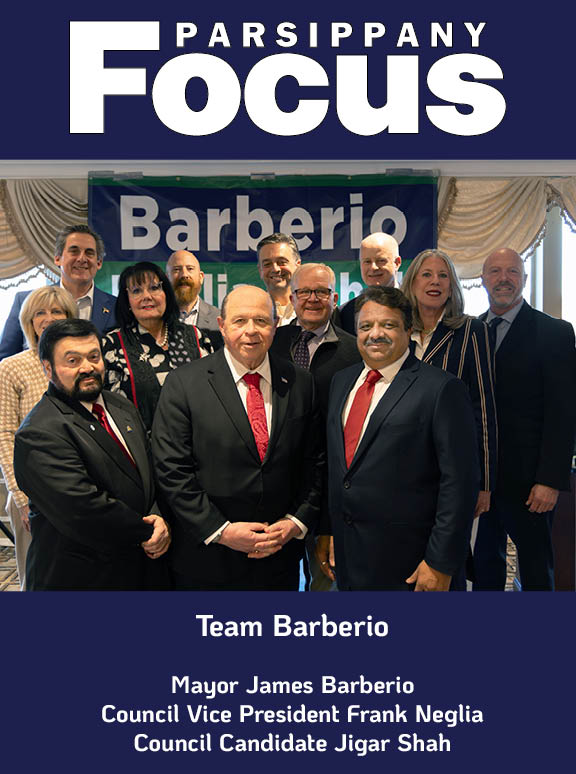PARSIPPANY — We live in a complex world today where our lives depend on many material things. We need electricity, transportation, water, clothing, and food, only to name a few resources. While going about our daily lives, most of us do not pay much attention to how these resources are brought to us. The whole process from production to transportation to distribution leaves a large footprint on the environment. Our consumption habits aggravate the issue and if we are not mindful of them, we could potentially be doing a lot of damage all around us.
Let us analyze one aspect of our lives, the food we consume. Within food, let us take a deeper look at the meat we eat. Most people fail to recognize the connection between meat and climate change. In fact, the meat industry is one of the biggest contributors to greenhouse gas emissions from the agriculture and livestock sector.

More than half of U.S. grain and nearly 40 percent of world grain is being fed to livestock rather than being consumed directly by humans. Just 55 percent of the world’s crop calories are actually eaten directly by people. Another 36 percent is used for animal feed. And the remaining 9 percent goes toward biofuels and other industrial uses. Some of that animal feed eventually become food but it takes about 100 calories of grain to produce just 12 calories of chicken or three calories worth of beef.

Enteric methane, produced from the intestines of cows, is a Short-Lived Climate Pollutant (SLCP) and has a life span of 12 years in comparison to carbon dioxide (CO2), parts of which stay in the atmosphere for many hundreds to thousands of years. Methane traps 84 times more heat than CO2 over the first two decades after it is released into the air. Even over a 100-year period, the comparative warming effect of enteric methane is 34 times greater than carbon dioxide (per kg). Therefore, reducing the rate of enteric methane emissions would help reduce the rate of global warming in short term, and if emission reductions are sustained, can also help limit peak warming. [fao.org]
 Soils play a key role in the carbon cycle by soaking up carbon from dead plant matter. Plants absorb CO2 from the atmosphere through photosynthesis, and pass carbon to the ground when dead roots and leaves decompose. Deforestation to create agricultural lands can cause this soil carbon to get released at a faster rate than it can be replaced. This net release of carbon to the atmosphere further contributes to global warming.
Soils play a key role in the carbon cycle by soaking up carbon from dead plant matter. Plants absorb CO2 from the atmosphere through photosynthesis, and pass carbon to the ground when dead roots and leaves decompose. Deforestation to create agricultural lands can cause this soil carbon to get released at a faster rate than it can be replaced. This net release of carbon to the atmosphere further contributes to global warming.
Beef production is resulting in massive deforestation in the Amazon. There are many issues here. With deforestation, we are losing trees that act as sinks for greenhouse gases. The burning down of these forests to create pastures for grazing cattle is releasing more CO2 into the environment. Beef and soy production is driving more than two-thirds of the recorded habitat loss in Brazil, Argentina, and Paraguay. Demand for soy is closely connected to demand beef and other animal proteins. Between 70 percent and 75 percent of all soy becomes livestock feed.
 Being disturbed by how a lot of human beings have shed their responsibility of taking care of the very environment they depend on, Anika Arora, a freshman at Parsippany Hills High School, and Divya Arora, a Seventh grader at Brooklawn Middle School, decided to take action. In 2020, they decided to launch an awareness campaign to educate their community on the adverse effects that the meat industry is having on Climate Change.
Being disturbed by how a lot of human beings have shed their responsibility of taking care of the very environment they depend on, Anika Arora, a freshman at Parsippany Hills High School, and Divya Arora, a Seventh grader at Brooklawn Middle School, decided to take action. In 2020, they decided to launch an awareness campaign to educate their community on the adverse effects that the meat industry is having on Climate Change.
With the support of Parsippany-Troy Hills superintendent of schools, Dr. Barbara Sargent, and Brooklawn Middle School principal, Ms. Carly Stout, they started spreading the word at their school encouraging students to sacrifice a meat meal each Monday. With the full support of the Parsippany-Troy Hills Environmental Advisory Committee, led by Laura McCluskey, Judy Hernandez, and Lisa Plevin, they have done several presentations at the town library, set up a booth at the town’s ‘Green Fair’ and also presented to the Town Council Members.
Anika and Divya hope that by starting this grassroots movement in their community they will be able to inspire a lot more people to spring into action. Today, they continue to work with their school communities to raise awareness on the importance of ‘Meatless Mondays’.
As Herbert Spencer once said, “The great aim of education is not knowledge but action”.
Follow Anika and Divya’s blogs on @_simply.green_
















